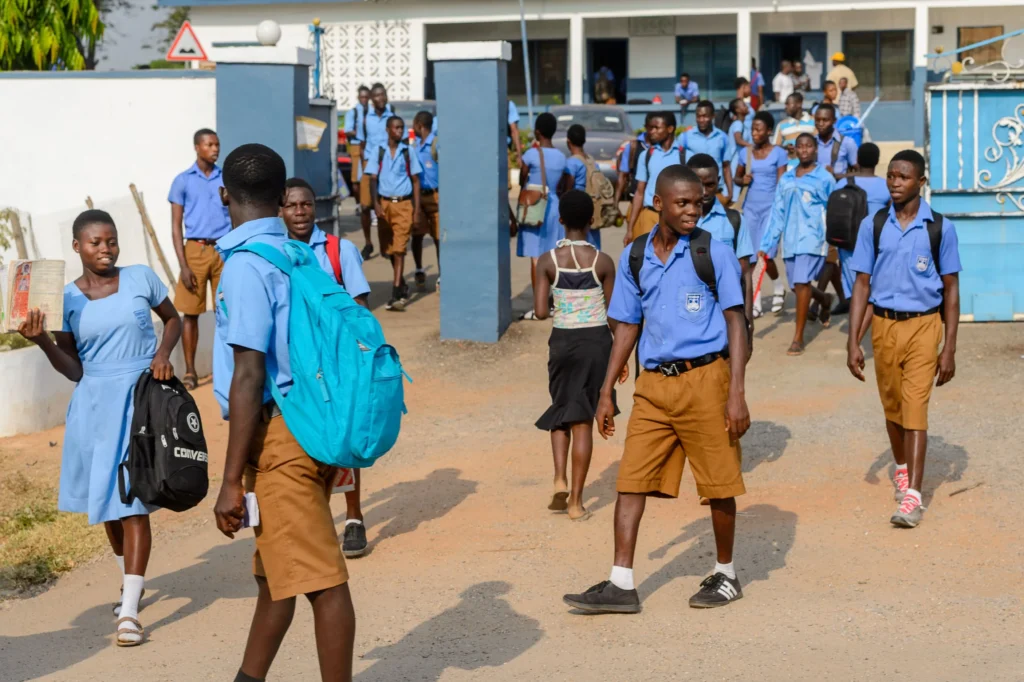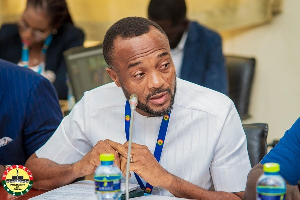Renowned educationist and governance expert, Prof. Stephen Adei, has delivered a damning critique of Ghana’s latest education reform proposal, dismissing it as another round of hollow political performance.
In his candid remarks, Prof. Adei expressed deep skepticism about the value of such reviews, noting that successive governments—both past and present—have made a habit of launching ambitious education reforms that ultimately deliver very little.
“I don’t have much faith in so-called educational reviews, whether previous government or this government,” Prof. Adei stated, laying bare his doubts about the sincerity and effectiveness of these reform initiatives.
He criticized the overwhelming demands placed even on kindergarten and primary school children under these policies, calling it “mind-boggling.”
But his concerns go beyond policy overload. According to Prof. Adei, Ghana’s primary education system is fundamentally broken.
“The World Bank describes Ghana’s basic education, primary in particular, as schooling without learning. And we have the worst primary school system in the whole world.”
Prof. Stephen Adei
In a country that prides itself on producing bright minds and resilient youth, such a sobering statement forces a painful pause.
For Prof. Adei, the failure begins at the foundation—kindergarten through Primary 2—where children should be taught just a few core skills: reading, writing, basic arithmetic, and a love for learning.

“When children are in kindergarten, P1 and P2 in particular, the emphasis should be on, at most, three or four things. They must be literate in the main language of English and hopefully their mother tongue, two of them. They should learn how to write and then enumerate.”
Prof. Stephen Adei
He insisted that if this simple foundation is laid, “the sky is literally the limit.” However, the reality on the ground is anything but simple.
The current system burdens six-year-olds with as many as ten subjects—something Prof. Adei finds absurd. “You go to a primary school, you want them to do seven subjects or ten subjects in primary one. Are you crazy?”
Political Gymnastics, Not Reform
Furthermore, Prof. Adei predicted that the current education reform review would be no different from those before it—loaded with buzzwords and impractical solutions. “The review will come out with about ten things to be done again,” he quipped.

Instead of reinventing the wheel, he advocated a more targeted approach: “Stop all the other things and concentrate on these three or four things in the first three years… getting our students with different memories.”
But the problem, he stressed, is that education policy in Ghana is often driven by political promises, not practical realities.
“This is just, politically, we said we would do it, and we do it. What needs to be done? We know it. But they will not even listen to you.”
Prof. Stephen Adei
He also took aim at the process of consultation that typically accompanies reforms.
According to Prof. Adei, it rarely involves the actual practitioners—teachers in classrooms, school leaders, and community education pioneers—who are already solving these problems on the ground.
“When it comes to basic education in Ghana, it’s not titled… The problems we are trying to solve are being solved in Ghana, and they will not invite those people.”
Prof. Stephen Adei

For him, this disconnect is not only frustrating but self-defeating. Drawing an analogy from banking, he said, “It’s like going to the Bank of Ghana, and the average Bank of Ghana staff member has never worked in a retail bank. They don’t even understand what they are talking about.”
Accordingly, Prof. Stephen Adei urged policymakers to leave their insulated environments and engage directly with real-world examples, pointing to small but effective models of quality basic education already operating in the country.
He emphasized that even within the public sector, some schools—though few—are succeeding and should serve as case studies for broader reform.
He ended his remarks with a stinging rebuke of what he sees as the root of the problem: an over-politicization of education policy.
“Don’t sit in your ashtray tower with political power and then think that we know it all. There’s a difference between education reform and political gymnastics.”
Prof. Stephen Adei
His final advice was as clear as it was powerful: “Just get our children in the first three years of education, literate, numerate, and lab studies. That’s all that is needed.”
READ ALSO: Gov’t Assures Job Security as it Assumes Control of Damang Mine





















